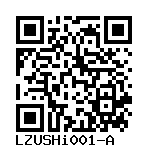ips98
The cell line is not validated yet.
LZUSHi001-A
General
Cell Line |
|
| hPSCreg name | LZUSHi001-A |
| Cite as: | LZUSHi001-A (RRID:CVCL_C0IG) |
| Alternative name(s) |
ips98
|
| Cell line type | Human induced pluripotent stem cell (hiPSC) |
| Similar lines |
ZJSHi001-A (ZJSHi-KCNB1) Donor's gene variants: KCNB1 Donor diseases: developmental and epileptic encephalopathy, 26 CBIGi045-A (GBA L444P(CBIGi045-A), IPSC0077) Donor's gene variants: GBA, GBA Donor diseases: Parkinson Disease CBIGi049-A (IPSC0093, SOD1 I144T(CBIGi049-A)) Donor's gene variants: SOD1, SOD1 Donor diseases: Amyotrophic Lateral Sclerosis |
| Last update | 31st January 2023 |
| User feedback | |
Provider |
|
| Generator | Lanzhou University Second Hospital (LZUSH) |
External Databases |
|
| BioSamples | SAMEA10768119 |
| Cellosaurus | CVCL_C0IG |
| Wikidata | Q112930035 |
General Information |
|
| Publications | |
| * Is the cell line readily obtainable for third parties? |
No |
Donor Information
General Donor Information |
|
| Sex | male |
| Ethnicity | The hui nationality |
Phenotype and Disease related information (Donor) |
|
| Diseases | A disease was diagnosed.
|
Karyotyping (Donor) |
|
| Has the donor karyotype been analysed? |
Unknown
|
Other Genotyping (Donor) |
|
| Is there genome-wide genotyping or functional data available? |
Yes
|
External Databases (Donor) |
|
| BioSamples | SAMEA10768118 |
Ethics
| Has informed consent been obtained from the donor of the embryo/tissue from which the pluripotent stem cells have been derived? | Yes |
| Was the consent voluntarily given? | Yes |
| Has the donor been informed that participation will not directly influence their personal treatment? | Yes |
| Can you provide us with a copy of the Donor Information Sheet provided to the donor? | No |
| Do you (Depositor/Provider) hold the original Donor Consent Form? | No |
| If you do not hold the Donor Consent Form, do you know who does? | Yes |
| Is there other documentation provided to the donor for consenting purposes? | No |
| Please indicate whether the data associated with the donated material has been pseudonymised or anonymised. | anonymised |
| Does consent explicitly allow the derivation of pluripotent stem cells? | Yes |
| * Does consent pertain to a specific research project? | Yes |
| Details on restriction to research project | Neuronal differentiation |
| Does consent permit unforeseen future research, without further consent? | No |
| Does consent expressly prevent development of commercial products? | Yes |
| Does consent expressly prevent financial gain from any use of the donated embryo/tissue, including any product made from it? | Yes |
| Does consent prevent the DONATED BIOSAMPLE from being made available to researchers anywhere in the world? | Yes |
| Does consent prevent CELLS DERIVED FROM THE DONATED BIOSAMPLE from being made available to researchers anywhere in the world? | No |
| How may genetic information associated with the cell line be accessed? | No information |
| Will the donor expect to receive financial benefit, beyond reasonable expenses, in return for donating the biosample? | No |
| Does the consent permit the donor, upon withdrawal of consent, to stop the use of the derived cell line(s) that have already been created from donated samples? | Yes |
| Does the consent permit the donor, upon withdrawal of consent, to stop delivery or use of information and data about the donor? | Yes |
| Has a favourable opinion been obtained from a research ethics committee, or other ethics review panel, in relation to the Research Protocol including the consent provisions? | Yes |
| Name of accrediting authority involved? | Lanzhou University Second Hospital |
| Approval number | 2021A-060 |
| Do you have obligations to third parties in regard to the use of the cell line? | No |
| Are you aware of any further constraints on the use of the donated embryo/tissue or derived cells? | No |
| For generation of the cell line, who was the supplier of any recombined DNA vectors or commercial kits used? |
hIPSC Derivation
General |
|
| Source cell type |
A peripheral blood cell with a single nucleus. This category includes lymphocytes and monocytes.
Synonyms
|
Reprogramming method |
|
| Vector type | Non-integrating |
| Vector | Episomal |
Vector free reprogramming |
|
Other |
|
| Derived under xeno-free conditions |
Unknown |
| Derived under GMP? |
Unknown |
| Available as clinical grade? |
Unknown |
Culture Conditions
| Medium |
StemPro® hESC SFM
|
Characterisation
No characterisation data could be found.Genotyping
Karyotyping (Cell Line) |
|
| Has the cell line karyotype been analysed? |
Unknown
|
Other Genotyping (Cell Line) |
|


Login to share your feedback, experiences or results with the research community.